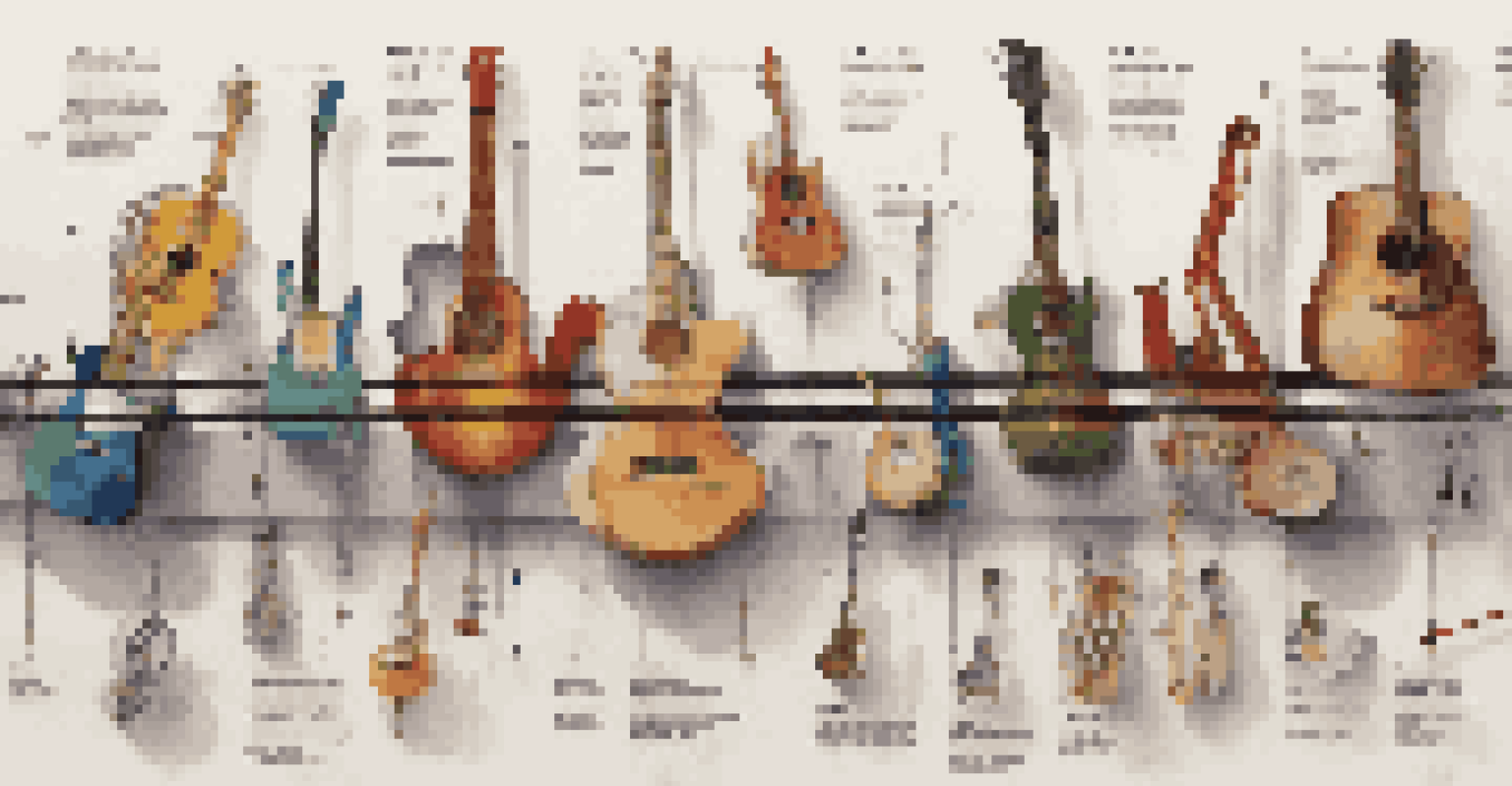The Importance of Music in Cultural Representation

Music as a Reflection of Cultural Heritage
Music often serves as a mirror to a community’s history and traditions. It encapsulates stories, struggles, and triumphs that define a culture. For instance, folk songs passed down through generations can reveal insights into a group's values and beliefs.
Music is the universal language of mankind.
When we listen to traditional music, we aren't just hearing melodies; we are connecting with the emotions and experiences of those who came before us. This connection can evoke a sense of pride and belonging within individuals and communities alike.
Moreover, the preservation of musical styles can safeguard a culture’s identity, ensuring that future generations can appreciate and learn from their heritage.
Music as a Tool for Cultural Expression
Artists often use music to express cultural narratives that might otherwise go unheard. Genres like hip-hop and reggae have roots in social movements and provide a voice to marginalized communities. Through powerful lyrics and rhythms, these artists share their experiences and advocate for change.

Take, for example, the way protest songs have historically rallied people together. They encapsulate the struggles and aspirations of a community, acting as anthems for social justice and unity.
This form of expression not only promotes awareness but also encourages listeners to engage with cultural issues, fostering empathy and understanding across diverse audiences.
The Role of Music in Cultural Assimilation
As cultures interact and merge, music plays a crucial role in the assimilation process. New genres often emerge from the blending of different musical styles, showcasing how cultures can coexist and influence one another. This fusion gives rise to unique sounds that reflect shared experiences.
Without music, life would be a mistake.
Consider how Latin pop has gained popularity worldwide, incorporating elements from various musical traditions while still honoring its roots. This creates a vibrant tapestry of sound that connects listeners from different backgrounds.
Through this blending, music helps bridge cultural divides, making it easier for individuals to appreciate and celebrate diversity in a globalized world.
Music as a Catalyst for Cultural Awareness
Listening to music from different cultures can enhance our understanding and appreciation of their nuances. It opens doors to explore unfamiliar traditions and histories. For instance, learning about the significance of traditional Asian instruments can deepen our respect for those cultural practices.
Moreover, music festivals that celebrate global genres foster a sense of community and shared experience. They encourage attendees to immerse themselves in different cultures through music and dance, promoting cultural exchange.
This process of discovery can challenge stereotypes and preconceived notions, paving the way for a more inclusive society.
The Emotional Impact of Cultural Music
Music has an incredible ability to evoke emotions, often tied to cultural experiences. A familiar tune can transport us back to significant moments in our lives, creating powerful memories. This emotional connection is particularly evident in cultural music that resonates deeply with listeners.
For example, a traditional wedding song may stir feelings of joy and nostalgia, linking individuals to their cultural roots. These emotional experiences can strengthen identity and foster a sense of belonging within a community.
Additionally, sharing these emotions through music can unite people, transcending language barriers and fostering deeper connections.
The Influence of Technology on Cultural Music
In today's digital age, technology has transformed how we experience and share music. Streaming platforms allow for the exploration of diverse cultural sounds, making it easier for listeners to discover new genres from around the world. This accessibility fosters cross-cultural appreciation and collaboration.
Artists can also use social media to showcase their cultural heritage, reaching global audiences and creating communities around their music. This has led to an explosion of interest in world music, as people seek out authentic cultural experiences.
However, this trend also raises questions about cultural appropriation. It’s essential for artists and listeners to navigate this landscape respectfully, ensuring that cultural music is shared and celebrated responsibly.
The Future of Music in Cultural Representation
As we look to the future, the role of music in cultural representation will continue to evolve. Emerging artists are increasingly blending genres and influences, creating new sounds that reflect our interconnected world. This evolution can foster a greater appreciation for cultural diversity.
Educational initiatives that emphasize the importance of music in cultural representation will also play a crucial role. By incorporating music into curricula, we can help future generations understand and appreciate the rich tapestry of global cultures.

Ultimately, music will remain a vital force in shaping cultural identity, connecting people across borders, and celebrating our shared human experience.